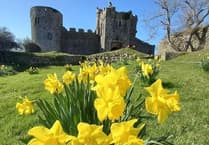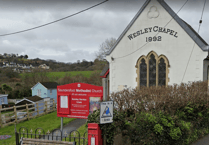Market forces have left communities in Carmarthenshire “defenceless” against the rise of second homes, a member of the council’s administration has said.
Clr. Cefin Campbell’s motion calling for a clampdown on second homes and holiday homes was passed at a meeting of full council, although around a quarter of the county’s 74 councillors did not vote after declaring an interest in the subject.
The motion said 1,118 homes in Carmarthenshire were not the sole or main dwelling of the owner – up to 40 per cent in some areas – which was pricing out local people.
It welcomed a Welsh Government intention to add a 1 per cent increase in land transaction tax on the purchase of a second home, but said more measures were needed.
Clr. Campbell said younger families “forced to leave” their communities would help bolster pupil numbers, the local economy and the Welsh language if they stayed.
He said there evidence of a rise in second home ownership because people’s dream of owning a holiday pad in places like Provence had become a ” bit of a nightmare” after Brexit.
Buyers’ preferences had also changed because of the coronavirus pandemic, he said.
“It’s not really about inadequate planning policies – more about the unequal distribution of wealth. The haves, the have nots,” said Clr. Campbell.
“It’s when market forces leave your communities defenceless.
“It’s when privilege and entitlement overrides local needs.”
Frustration, he added, was boiling over into anger.
Seconding the motion, Clr. Alun Lenny gave examples of how an authority in England had addressed the situation with new planning policies, and said this could inform the thinking in Wales.
“We have to do something to manage the situation,” he said. “If the Welsh Government won’t do it, who will?”
Laugharne councillor Jane Tremlett said second homes had caused increasing concern for years in her ward.
“We are a close-knit community – everyone previously knew everyone else,” she said.
“Second home owners obviously make little or no contribution to the local community. This erodes the feeling of belonging.”
She said Laugharne felt “quite empty” between the end of October and Easter, and that young people who had to leave to afford a property were less likely to be able to look after their parents.
“It (Laugharne) is a recognised tourist destination but we are also a community and we need to ensure a balance between the two,” she said.
Llansteffan councillor Carys Jones said up to a quarter of houses in her home town were empty for the majority of the year.
“Second homes are having a crippling effect on house prices,” she said.
Clr. Jones cited a report from 1972 which researched the second home issue and came up with several recommendations.
“The time for legislation has come,” she said.
The 19 or so councillors who declared an interest did so because they either owned a holiday home themselves, including council leader Emlyn Dole, had relatives who were landlords, like opposition leader Clr. Rob James, knew someone who owned a holiday home, or – in Clr. Sue Allen’s case – was an Airbnb “superhost”.
Labour councillor Kevin Madge did not support the motion, saying that when people came to live in Carmarthenshire they brought investment, including starting their own businesses.
He also cited Welsh Government support for first time buyers, but he was accused of being confused about what second homes really were.
Clr. Campbell suggested that Clr. Madge would rather see the benefit of people moving in than local people.
“He has raised irrelevant points,” said Clr. Campbell.
The second homes motion passed by Carmarthenshire councillors called on the Welsh Government to:
• Change planning laws to ensure that planning permission must be sought for the change of use of a primary dwelling into a second home/ holiday accommodation
• Allow local authorities, in consultation with the local community, to set a cap on the number of second homes in each ward, and allow the use of Section 106 (planning) agreements to prevent new properties from being used as second homes in wards with an unacceptable proportion of second homes
• Introduce a licensing system for managing the conversion of a residential property into a commercial unit such as a holiday unit / house or Airbnb
• Close the loophole that allows second homes to register as businesses in order to opt out of paying domestic rates and council tax premiums, and take advantage of business rate relief.




